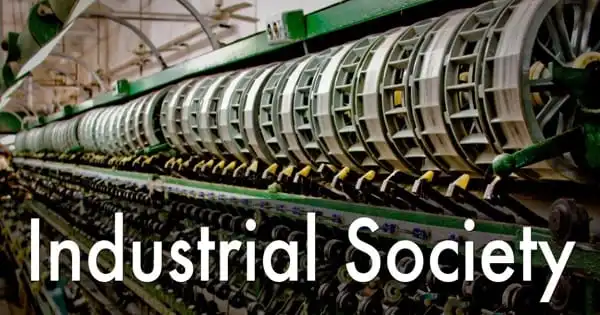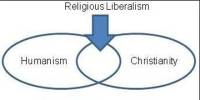The Industrial Society is a society that relies on mechanical labor, rather than physical labor, to produce material things. In sociology, an industrial society is one that is characterized by the use of technology and machines to facilitate mass production, hence supporting a big population with a high capacity for labor division. It is one in which mass-production methods are employed to produce large quantities of commodities in factories, and in which this is the dominant mode of production and the organizer of social life.
Following the Industrial Revolution, such a structure arose in the Western world, replacing the agrarian cultures of the pre-modern, pre-industrial era. This indicates that a real industrial civilization not only contains mass factory production, but also a social structure that is specifically intended to sustain such operations. Industrial societies are often mass societies that may be followed by information society. They are frequently compared to traditional communities.
External energy sources, such as fossil fuels, are used by industrial cultures to boost the rate and size of production. A society like this is often organized hierarchically by class and has a rigorous division of labor between workers and factory owners. Food production is shifting to massive commercial farms, where industrial equipment such as combine harvesters and fossil fuel-based fertilizers are employed to reduce required human labor while increasing output. Excess labor that is no longer required for food production is transferred to these facilities, where mechanization is used to boost efficiency even more. Many people are shifting to expanding service industries as populations grow and machinery becomes more polished, frequently to the point of automation.
The industrial society encourages urbanization, in part so that workers can be closer to centers of production, and the service industry can provide labor to workers and those who benefit financially from them in exchange for a portion of production earnings with which they can purchase things. As a result, very large cities and surrounding suburbs with a high rate of economic activity are on the rise.
These urban areas, which are otherwise unsustainable, require the infusion of external energy sources to overcome the diminishing returns of agricultural consolidation, which are owing in part to a scarcity of adjacent fertile land, as well as associated transportation and storage expenses. As a result, industrial government policies prioritize the reliable availability of required energy resources.
An industrial civilization, according to sociology, is one that harnesses technological developments to fuel a strong manufacturing industry capable of supporting a big population. The United States, for example, is an industrial civilization because a significant section of its economy is linked to jobs using mechanized labor, such as factory farming or auto-assembly facilities, which use a combination of machines and human employees to manufacture consumer goods.
In most circumstances, the goal of an industrial economy is mass production of goods, which is the quick and efficient creation of standardized products. For example, if you’ve ever bought a car, there’s a good chance it was mass made because it runs similarly to other models and its parts are interchangeable because they’re equivalent.
















